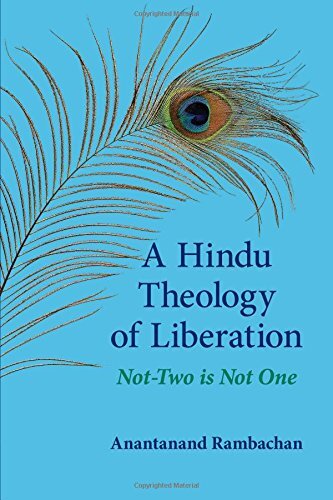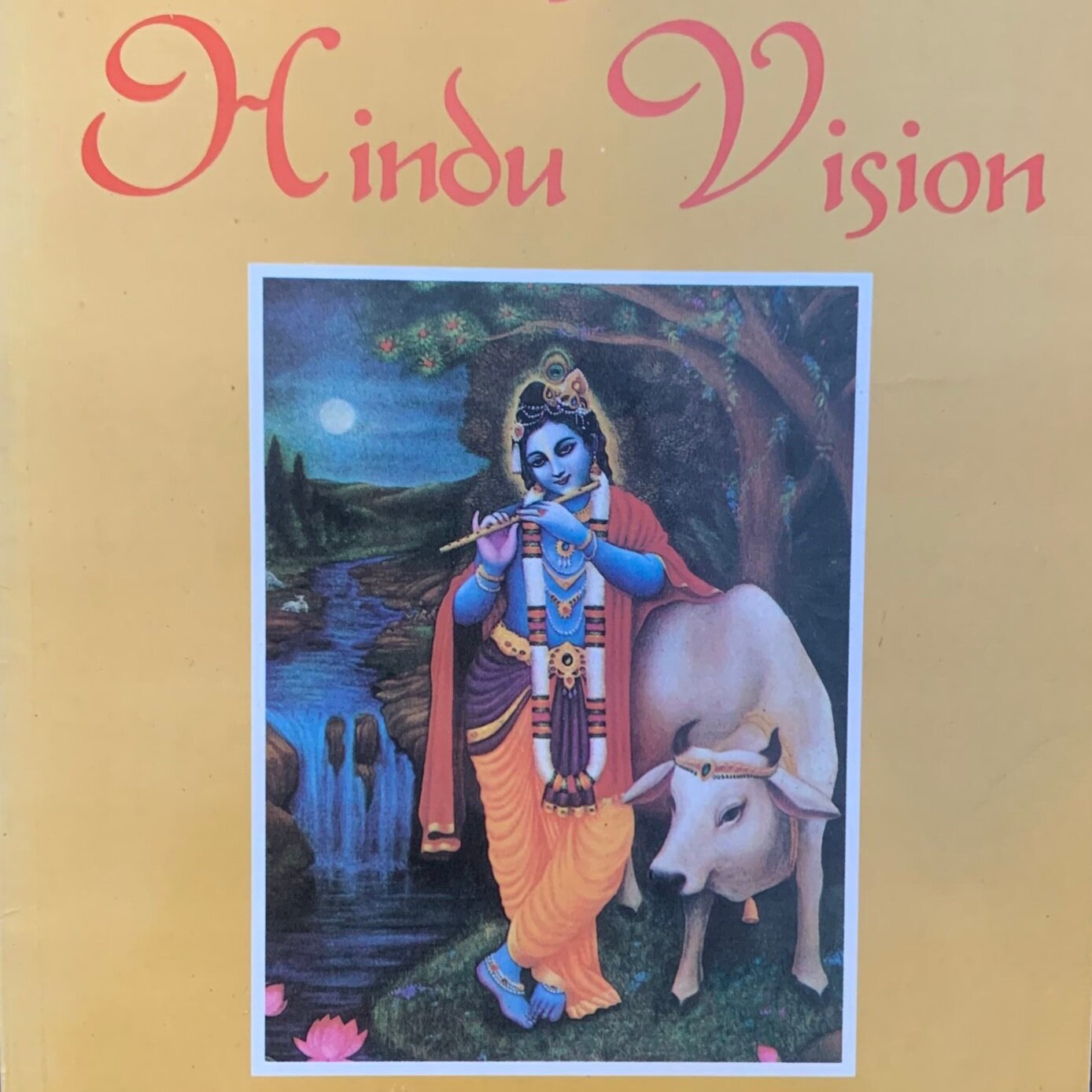BOOKS
ESSAYS IN HINDU THEOLOGY
This work offers a series of theological explorations of themes not usually addressed in standard treatments of the Hindu tradition. Rambachan’s retrieval of these distinctive insights of Hindu theology has implications that extend across the world's religions, and that touches upon key areas of mutual interest and concern. Beginning with a general introduction to the Hindu theological tradition, the book examines several key issues in Hindu theology and its engagement with contemporary religious, social, political, and inter-faith questions, including the theological methods employed in the study of Hinduism, the discernment of vocation, the theological grounds for social justice in the Hindu tradition, religion and nationalism, violence and non-violence, theological resources for interreligious dialogue (especially among Hindus and Christians), hospitality and openness to the stranger, and spirituality and holiness.
In exploring these issues, this study draws deeply from Hindu authoritative sources, but does not limit itself to description. Each chapter is also a work in constructive theology, offering an interpretation of the Hindu tradition appropriate for life in our contemporary world. Essays in Hindu Theology will be of great interest not only to theologians and scholars, but to all who are invested in interreligious understanding and theological engagements with modern challenges.
A HINDU THEOLOGY OF LIBERATION
This engaging and accessible work provides an introduction to the Hindu tradition of Advaita Vedānta and brings it into discussion with contemporary concerns. Advaita, the non-dual school of Indian philosophy and spirituality associated with Śaṅkara, is often seen as “other-worldly,” regarding the world as an illusion. Anantanand Rambachan has played a central role in presenting a more authentic Advaita, one that reveals how Advaita is positive about the here and now. The first part of the book presents the hermeneutics and spirituality of Advaita, using textual sources, classical commentary, and modern scholarship. The book’s second section considers the implications of Advaita for ethical and social challenges: patriarchy, homophobia, ecological crisis, child abuse, and inequality. Rambachan establishes how Advaita’s non-dual understanding of reality provides the ground for social activism and the values that advocate for justice, dignity, and the equality of human beings.
THE ADVAITA WORLDVIEW
In this book, Anantanand Rambachan offers a fresh and detailed perspective on Advaita Vedanta, Hinduism’s most influential and revered religious tradition. Rambachan, who is both a scholar and an Advaitin, attends closely to the Upanisads and authentic commentaries of Sankara to challenge the tradition and to reconsider central aspects of its current teachings. His reconstruction and reinterpretation of Advaita focuses in particular on the nature of brahman, the status of the world in relation to brahman, and the meaning and relevance of liberation. Rambachan queries contemporary representations of an impersonal brahman and the need for popular, hierarchical distinctions such as those between a higher (para) and lower (apara) brahman. Such distinctions, Rambachan argues, are inconsistent with the non-dual nature of brahman and are unnecessary when brahman’s relationship with the world is correctly understood. Questioning Advaita’s traditional emphasis on renunciation and world-denial, Rambachan expands the understanding of suffering (duhkha) and liberation (moksa) and addresses socioeconomic as well as gender and caste inequalities. Positing that the world is a celebrative expression of God’s fullness, this book advances Advaita as a universal and uninhibited path to a liberated life committed to compassion, equality, and justice.
THE LIMITS OF SCRIPTURE: VIVEKANANDA’S REINTERPRETATION OF THE VEDAS
Hailed as one of modern India's cultural heroes, Swami Vivekananda (1863-1902) has been credited not only with interpreting Hinduism to the west but with interpreting it to India itself. Despite his pervasive influence, critical assessments and attempts to "demythologize" Vivekananda have been rare, and rarer still are historical and hermeneutical clarification of his work. The Limits of Scripture offers a close examination of Vivekananda's understanding of the authority of sruiti (the Vedas) and its relationship to anubhava (personal experience).
Beginning with an analysis of western influences and Hindu responses in the nineteenth century, Anantanand Rambachan moves on to a careful explication of Vivekananda's understanding of the Vedas, the nature and scope of their authority, and the hermeneutical principles employed by him in his approach to the texts. Throughout the discussion, the author also clarifies the generally overlooked distinctions between Vivekananda's view of anubhava as the source of liberating knowledge and that of Sankara (ca. 788-820), the principal systematizer and exponent of the Advaita tradition, who argued for the Vedas as the authoritative source of this knowledge. The task of critically distinguishing Sankara and Vivekananda has not been thoroughly accomplished elsewhere and is crucial for understanding religious and philosophical change in modern Indian thought.
ACCOMPLISHING THE ACCOMPLISHED: THE VEDAS AS A SOURCE OF VALID KNOWLEDGE IN SANKARA
Shankara is widely represented in contemporary studies as having accorded only a provisional validity to the knowledge gained by inquiry into the words of the Vedas. Accomplishing the Accomplished contends that such interpretations misrepresent Shankara;s epistemology in failing to apprehend the meaning that he ascribes to the Vedas as a definitive source of knowledge. In relation to the gain of the knowledge of brahman, Shankara saw all other sources of knowledge as subordinate to the Vedas and supported this view with detailed arguments. This word analyzes Shankara's arguments for the Vedas as a logical, adequate, and fruitful source of knowledge.
THE HINDU VISION
This is a discerning and lucid articulation of Hindu belief and practice. Professor Rambachan combines insight born out of his own devotion with mastery of relevant texts and traditions to create a gem of a book. He describes worship in its familial and temple contexts, holding before the reader the aim of worship as unbroken awareness of God in all of life. This awareness intensifies and expands the religious and moral meaning of life, death, and human action, Dharma, moksa and rebirth, and other classical Hindu teachings, are set forth with an elegance of style and economy of words. Rambachan is especially attentive to common misunderstandings of Hindu teachings. He shows how Hinduism avoids determinism, encourages freedom from ignorance and for joyful celebration of life, and issues forth in compassionate concern for others. The final chapter, 'A Hindu Looks at Jesus', will be of special value for Hindu-Christian dialogue. It is difficult to imagine a more accessible, concise and helpful introduction to the profound themes of Hinduism.
GITAMRTAM: THE ESSENTIAL TEACHINGS OF THE BHAGAVADGITA
Gitamrtam is a concise and insightful discussion of the central themes of the Bhagavadgita. Beginning with the Gita's teaching about the nature and role of the incarnation, Dr. Rambachan identifies kama, a state of desiring and wanting as life's fundamental problem. The proper resolution of this problem is to be found in the understanding of oneself to be the full and complete self (atman). Such a knowledge enables one to act in the world from a deep sense of peace and inward fulfillment. Self-knowledge transforms human motivation and liberates us from the narrow confines of selfish action to the freedom of serving others. The Gita's ideal is not indifference to the world and the severing of human relationships, but love and compassion born out of the identity of oneself with all beings.






